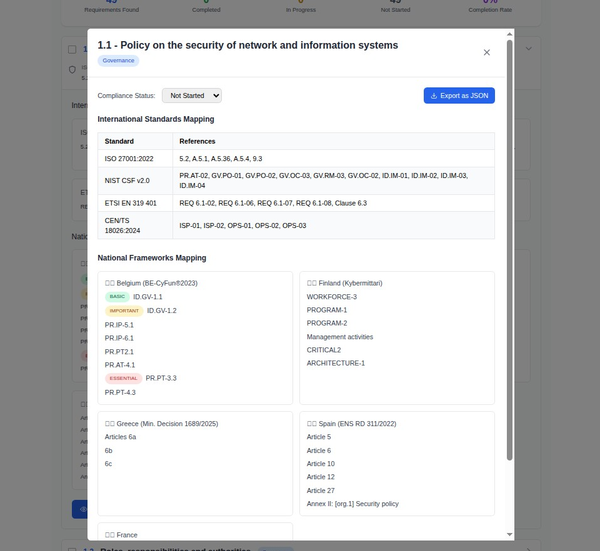Understanding the Personal Information Protection and Electronic Documents Act (PIPEDA): Canada's Framework for Data Privacy

In Canada, the Personal Information Protection and Electronic Documents Act (PIPEDA) is the primary legislation that governs how private sector organizations collect, use, and disclose personal information in the course of commercial business.
Gov website:

What is PIPEDA?
PIPEDA is a federal law that applies to private-sector organizations across Canada that collect, use, or disclose personal information in the course of a commercial activity. The law defines a commercial activity as any particular transaction, act, or conduct, or any regular course of conduct that is of a commercial character, including the selling, bartering, or leasing of donor, membership, or other fundraising lists.
Key Provisions of PIPEDA
PIPEDA is based on ten fair information principles that businesses must follow to protect personal information. These principles are:
- Accountability: An organization is responsible for personal information under its control and shall designate one or more individuals who are accountable for the organization's compliance with the following principles.
- Identifying Purposes: The purposes for which personal information is collected shall be identified by the organization at or before the time the information is collected.
- Consent: The knowledge and consent of the individual are required for the collection, use, or disclosure of personal information, except where inappropriate.
- Limiting Collection: The collection of personal information shall be limited to that which is necessary for the purposes identified by the organization. Information shall be collected by fair and lawful means.
- Limiting Use, Disclosure, and Retention: Personal information shall not be used or disclosed for purposes other than those for which it was collected, except with the consent of the individual or as required by law. Personal information shall be retained only as long as necessary for the fulfillment of those purposes.
- Accuracy: Personal information shall be as accurate, complete, and up-to-date as is necessary for the purposes for which it is to be used.
- Safeguards: Personal information shall be protected by security safeguards appropriate to the sensitivity of the information.
- Openness: An organization shall make readily available to individuals specific information about its policies and practices relating to the management of personal information.
- Individual Access: Upon request, an individual shall be informed of the existence, use, and disclosure of their personal information and shall be given access to that information. An individual shall be able to challenge the accuracy and completeness of the information and have it amended as appropriate.
- Challenging Compliance: An individual shall be able to address a challenge concerning compliance with the above principles to the designated individual or individuals accountable for the organization's compliance.
Compliance with PIPEDA
Compliance with PIPEDA is mandatory for all organizations processing personal information in Canada. Non-compliance can lead to penalties, including fines. To ensure compliance, organizations should regularly review and update their data protection policies and practices, and ensure that all staff are trained in data protection.
Conclusion
PIPEDA provides a robust framework for the protection of personal information in Canada. It balances the need for organizations to process personal information for legitimate purposes with the need to protect the rights and interests of individuals. As data protection continues to evolve globally, understanding and complying with laws like PIPEDA is crucial for any organization processing personal data.
Please note that this article is intended to provide a general overview of PIPEDA and does not constitute legal advice. For detailed guidance on PIPEDA compliance, please consult with a legal expert in Canadian data protection law.





